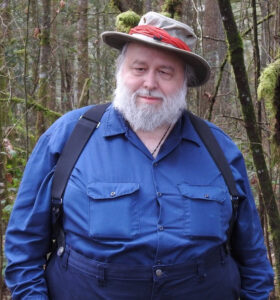 Ann has been practising yoga and meditation for nearly 20 years and has since completed her Masters in the Traditions of Yoga and Meditation from SOAS University with ongoing Sanskrit training. Ann was inspired from an early age by her father’s anecdotal experiences with Kuṇḍalinī and his involvement in experiments with Zen priest and transpersonal scientist, Dr Motoyama. Her own experiences have pointed her towards a phenomenological investigation of the parallels between spontaneous Kuṇḍalinī awakenings and Buddhist paths to enlightenment. Her previous research focuses on the phenomenology of Buddhist and Yogic experiences through practice.
Ann has been practising yoga and meditation for nearly 20 years and has since completed her Masters in the Traditions of Yoga and Meditation from SOAS University with ongoing Sanskrit training. Ann was inspired from an early age by her father’s anecdotal experiences with Kuṇḍalinī and his involvement in experiments with Zen priest and transpersonal scientist, Dr Motoyama. Her own experiences have pointed her towards a phenomenological investigation of the parallels between spontaneous Kuṇḍalinī awakenings and Buddhist paths to enlightenment. Her previous research focuses on the phenomenology of Buddhist and Yogic experiences through practice.
Ann is currently researching spontaneous Kuṇḍalinī arousals and how these experiences map onto the path of realisation within Indian Buddhist and Yogic traditions as well as cutting-edge consciousness theory. Her mission is to gain a deeper understanding of the psychological processes that can arise from spontaneous transpersonal experiences or deep meditation practice and how we can safely support others walking this path towards greater wholeness.
Website: annmathie.com
Discussion of this interview in the BatGap Community Facebook Group.
Interview recorded October 8, 2022
Video and audio below. Audio also available as a Podcast.
YouTube Video Chapters:
- 00:00:00 – Introduction and Background
- 00:04:25 – Kundalini and Theosophy
- 00:08:29 – Questioning Mainstream Sanity
- 00:11:53 – Exploring Different Religious Practices
- 00:16:02 – The Complexity of Traditions and Spiritual Paths
- 00:19:48 – The Path of Compassion and Moral Behavior
- 00:23:46 – The Three Components: Rajasic, Sattvic, Tamasic
- 00:27:39 – Breakthroughs and Trauma in Spiritual Experiences
- 00:31:07 – The Arhat and Enlightenment in Buddhism
- 00:34:34 – The Four Stages to Arhant-hood
- 00:38:12 – The Power of Insight in Teaching and Evaluation of Teachers
- 00:41:58 – The Importance of a Healthy Guru-Student Relationship
- 00:45:47 – Spiritual Integrity and Money in Modern Society
- 00:49:19 – Contrasting skillful means and direct realization
- 00:53:05 – The Benefits of Meditation Practice
- 00:56:57 – Dissolving the Illusion of Self-Personality
- 01:00:27 – Awakening Without Practice
- 01:04:25 – The Manifestation of Kundalini Energy
- 01:08:35 – Spontaneous Body Movements and Kriyas
- 01:12:06 – Letting Go of Stored Emotions
- 01:15:40 – The Relationship Between Shaking and Psychological Processes
- 01:19:28 – Managing Kundalini Energy for Individuals with Weak Neural Networks or Trauma
- 01:23:07 – The Consequences of Mind-Shattering Experiences
- 01:27:04 – The Challenges of Running a Marathon
- 01:30:51 – The Path to Enlightenment and Psychological Health
- 01:34:49 – The 10 Impurities of Insight
- 01:38:41 – The Importance of the Whole Path
- 01:42:18 – Finding Balance on the Spiritual Path
- 01:46:27 – Importance of Cultivating Right Intention
- 01:50:29 – The Importance of Compassion and Kindness
- 01:54:14 – A Conversation with Ann Mathie
Podcast: Play in new window | Download
Subscribe: Apple Podcasts | Spotify | Android | Email | TuneIn | RSS | More


